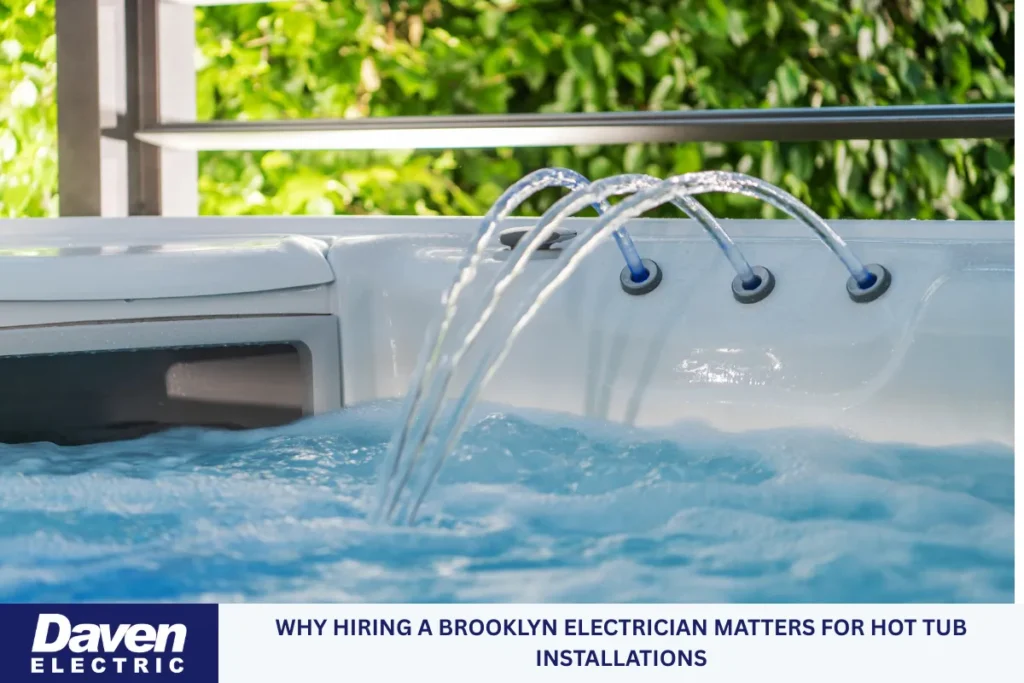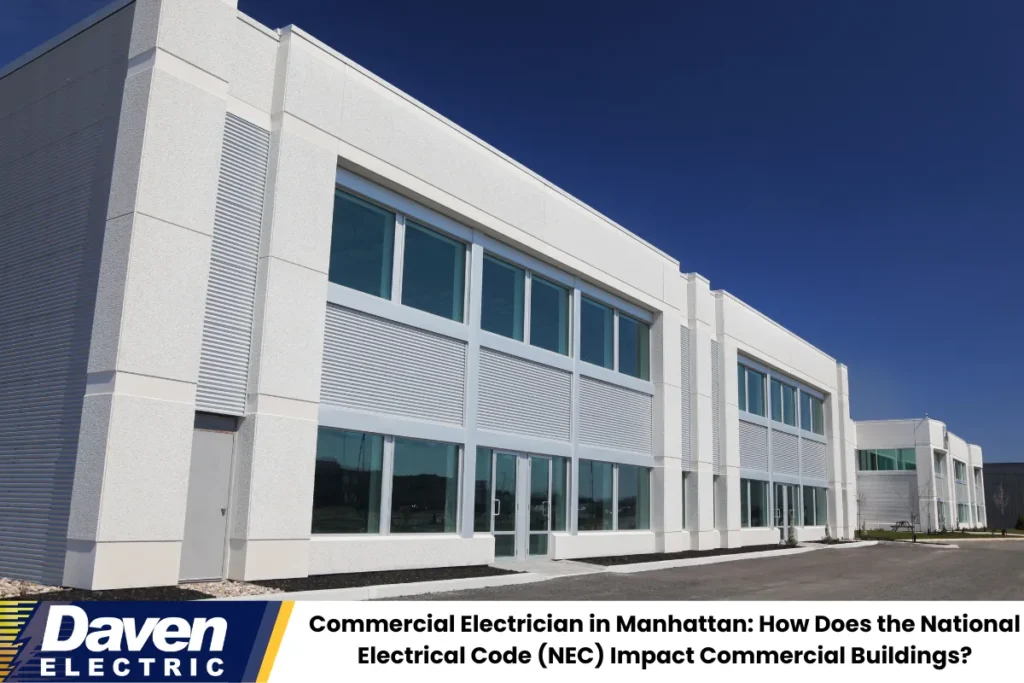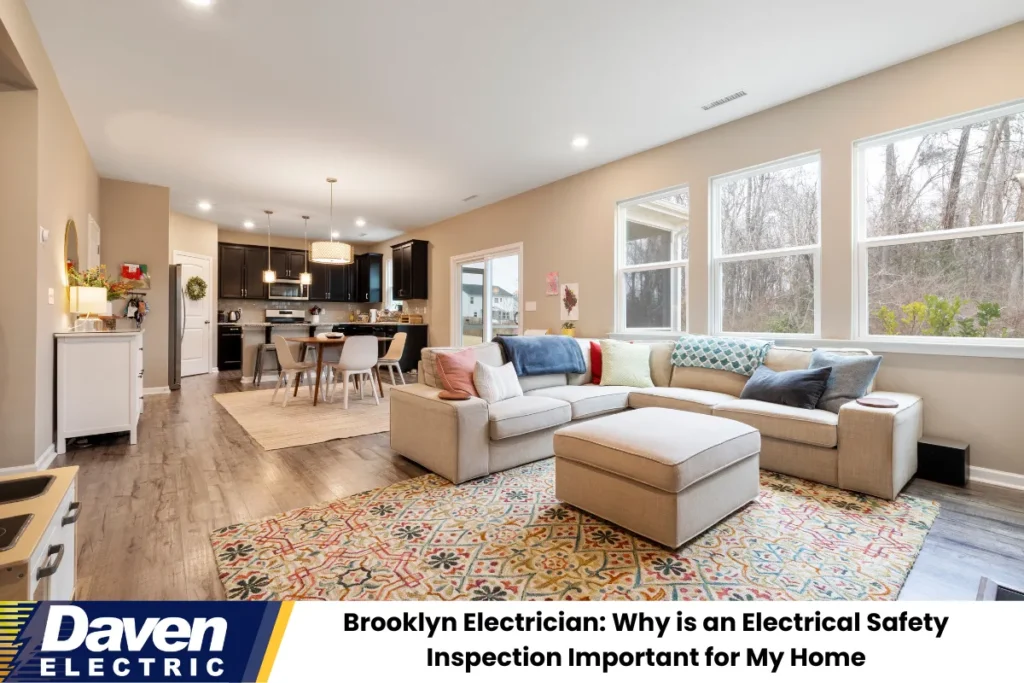Brooklyn electrician services are essential for anyone planning to install a hot tub in their home. While hot tubs are a fantastic way to relax and improve your property, installing them isn’t as simple as plugging in a household appliance. There are significant electrical considerations involved—some that can pose serious safety risks if not done correctly. This article dives into the technical, legal, and practical reasons why only a licensed electrician should handle hot tub installations in Brooklyn, NY.
Understanding the Electrical Needs of a Hot Tub
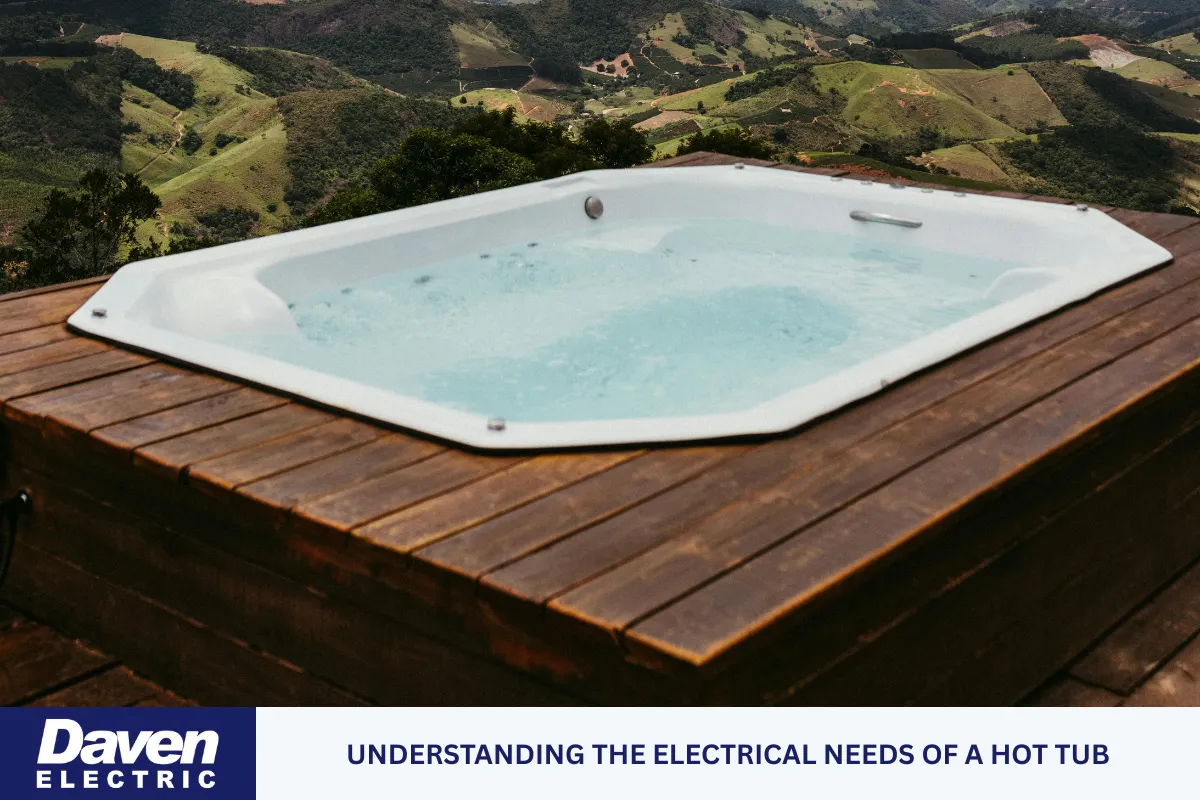
Installing a hot tub involves far more than placing it on a deck and filling it with water. Most modern hot tubs require a dedicated electrical circuit, proper voltage, and grounding, all of which must meet national and local safety codes. 220V–240V systems often power hot tubs, and the wiring must be able to handle high current loads consistently.
These systems also demand Ground-Fault Circuit Interrupters (GFCIs), which are critical for cutting off electricity in case of water contact or a short circuit. Even a small wiring mistake can lead to electrocution or fire. Because hot tubs are typically installed outdoors or in moisture-prone areas, the risks are even higher without professional help. A qualified Brooklyn electrician knows how to handle these specific technical challenges in line with local laws and building standards.
Why DIY Installation Is Dangerous and Often Illegal
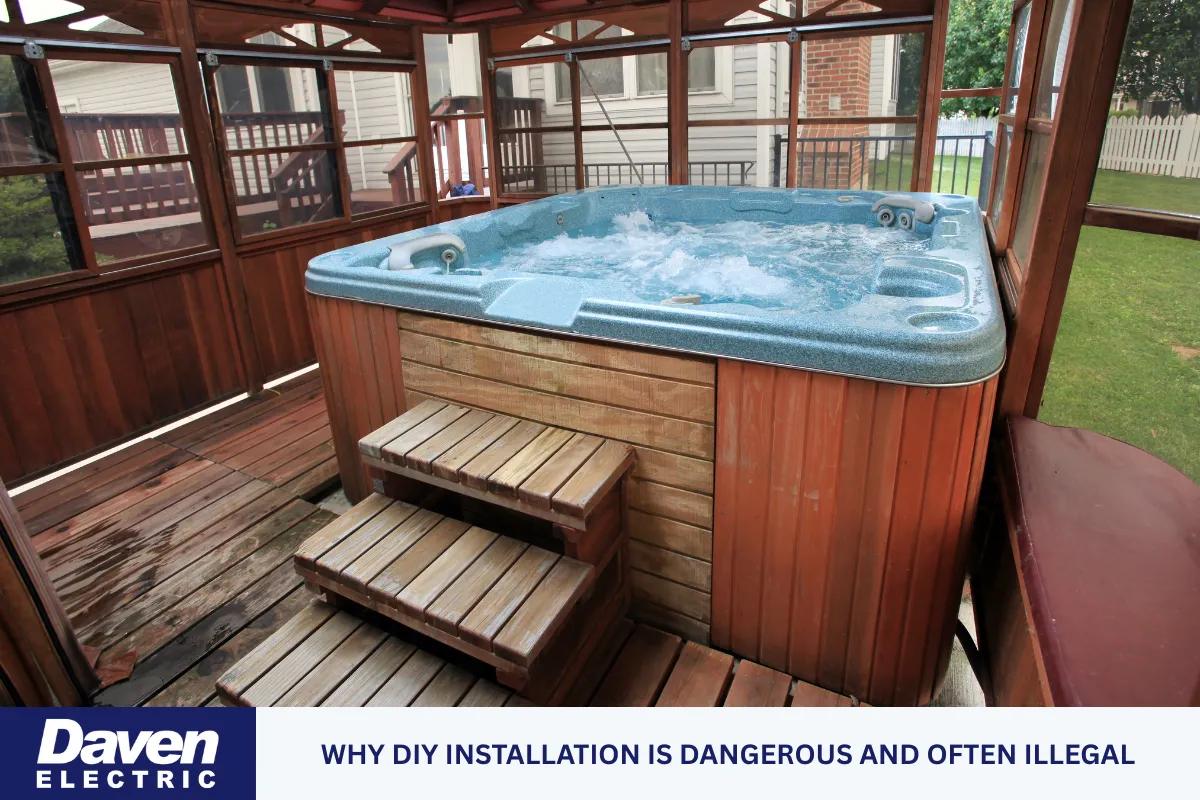
Electrical work should not be attempted without training and experience. Installing a hot tub may look manageable after watching a few online tutorials, but attempting it yourself can quickly spiral into a hazardous situation.
In Brooklyn, and throughout New York City, any significant electrical work—including hot tub installations—must be done by a licensed electrician. Doing it yourself or hiring someone unlicensed could result in:
- Code violations
- Fire hazards
- Injury or death
- Voided product warranties
- Insurance claim denials
Brooklyn building inspectors do not take shortcuts lightly. In many cases, unauthorized installations will be flagged, resulting in expensive fines and the potential removal of the hot tub. A proper setup, inspected and signed off by a licensed electrician, is the only safe and legal route.
Local Codes and Electrical Permits in Brooklyn, NY
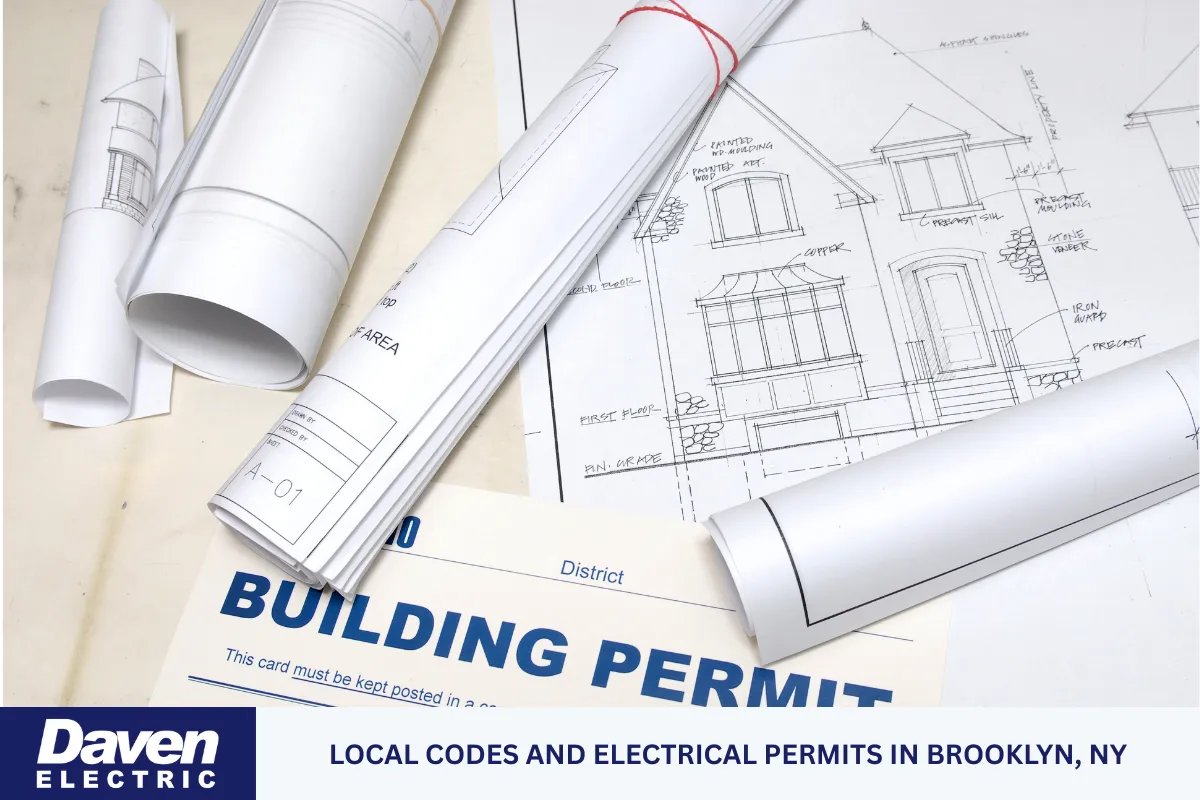
In a borough as densely packed and regulated as Brooklyn, adhering to city codes is non-negotiable. Every hot tub installation must comply with both the New York City Electrical Code and the National Electrical Code (NEC). These codes dictate how electrical systems must be designed, grounded, protected, and connected.
Installing a hot tub without a permit is not just a technical violation—it’s a legal one. A professional Brooklyn electrician will know the steps required to secure necessary permits and schedule official inspections. These processes are there for a reason: to protect homeowners, neighbors, and property from electrical failures that can cause serious harm.
Permits may seem like a hassle, but they ensure the system is safe and properly installed. Only licensed electricians can apply for these permits, and they’ll also handle the inspections to ensure the project is closed legally and professionally.
The Electrical Reality of Older Brooklyn Homes
Brooklyn is filled with beautiful pre-war brownstones, townhouses, and row homes. While charming, many of these structures were built long before modern electrical systems were standardized. In many cases, the existing electrical panels cannot support the additional load that a hot tub requires.
Older homes often need electrical panel upgrades to safely accommodate new appliances like hot tubs. This includes replacing outdated fuse boxes with modern circuit breaker panels, ensuring proper grounding, and increasing amperage capacity.
A licensed Brooklyn electrician will assess your current system, determine what upgrades are necessary, and design an installation plan that balances safety and efficiency. This kind of assessment is especially important if you plan to use the hot tub year-round, including during New York’s cold winters when heating elements work overtime.
Moisture, Weather, and Electrical Safety Outdoors

Hot tubs are often placed outdoors—in backyards, rooftops, patios, or decks. Outdoor environments present a unique set of challenges for electrical safety, especially in a climate like Brooklyn’s, where the weather varies drastically by season.
Waterproof enclosures, outdoor-rated cabling, and protective conduits must be installed to guard against rain, snow, and temperature shifts. Electrical outlets and breakers must be protected with weatherproof covers. Connections should be shielded from direct exposure to moisture and installed with grounding rods to direct any stray currents safely into the earth.
Electricity and water do not mix, and even a minor leak or short can lead to a major incident if safety protocols are ignored. A Brooklyn electrician trained in outdoor installations will ensure your system is built to withstand the local elements while maintaining peak safety and performance.
Risks of Hiring a Handyman or Unlicensed Worker
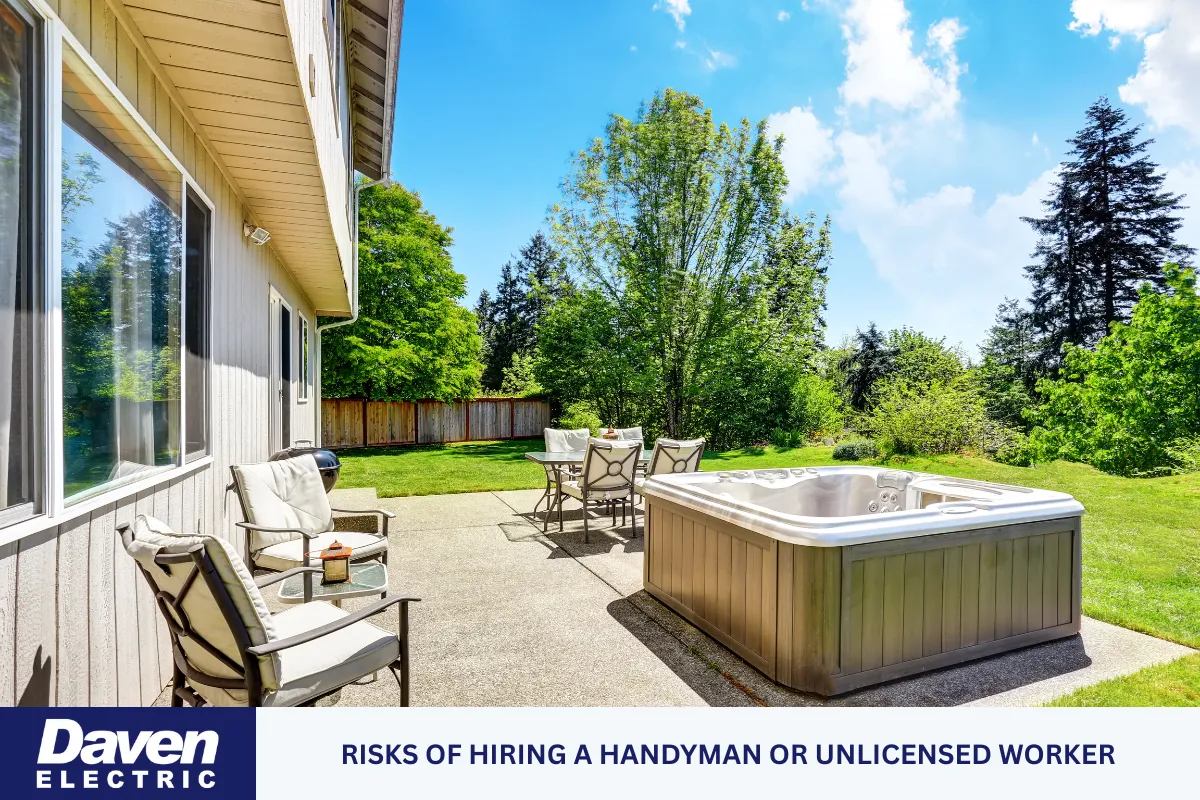
The temptation to cut costs by hiring a handyman or someone offering a cheap cash job is understandable—but incredibly risky. While they may promise a “quick fix,” they often lack proper certification, training, and understanding of local codes.
Unlicensed workers may:
- Skip essential safety steps like GFCI installation
- Use incorrect wire sizes or connectors
- Fail to pull permits or schedule inspections
- Install systems that violate code or overload your panel
These shortcuts may not be visible right away. Still, they can lead to major problems later—especially if an incident occurs and your insurance refuses to cover damages due to non-compliance. Hiring a certified Brooklyn electrician ensures every step meets safety and legal standards.
Real-Life Scenarios: What Could Go Wrong?
Let’s explore some common mistakes that occur with improper hot tub installations in Brooklyn neighborhoods.
Case 1: The Backyard Fire
In Midwood, a homeowner used an indoor-rated extension cord to power a hot tub temporarily. After a rainstorm, the cord shorted out and sparked a small fire on the deck. It took minutes for it to escalate. Firefighters traced the cause to an ungrounded, low-quality power connection.
Case 2: The Voided Warranty
In Bay Ridge, a family hired a handyman to save money on installation. The hot tub malfunctioned just two months later. The manufacturer refused to honor the warranty due to improper wiring, and the family was forced to pay for a new circuit installation and repair from scratch.
Each of these incidents could’ve been avoided by simply hiring a licensed electrician from the start.
What a Brooklyn Electrician Brings to the Table
A licensed Brooklyn electrician doesn’t just install wires—they bring years of training, hands-on experience, and deep knowledge of the city’s infrastructure.
Here’s what they provide:
- Accurate load calculations to prevent circuit overload
- Proper installation of weather-resistant components
- GFCI and surge protection tailored for outdoor spas
- Expertise in navigating city permits and inspections
- Upgrades to outdated panels and grounding systems
Every home is different, and every neighborhood—from Williamsburg to Flatbush—has its quirks. A local electrician understands those nuances and can tailor their approach to fit your home’s layout, your hot tub’s specifications, and the city’s building codes.
Long-Term Benefits of Professional Installation
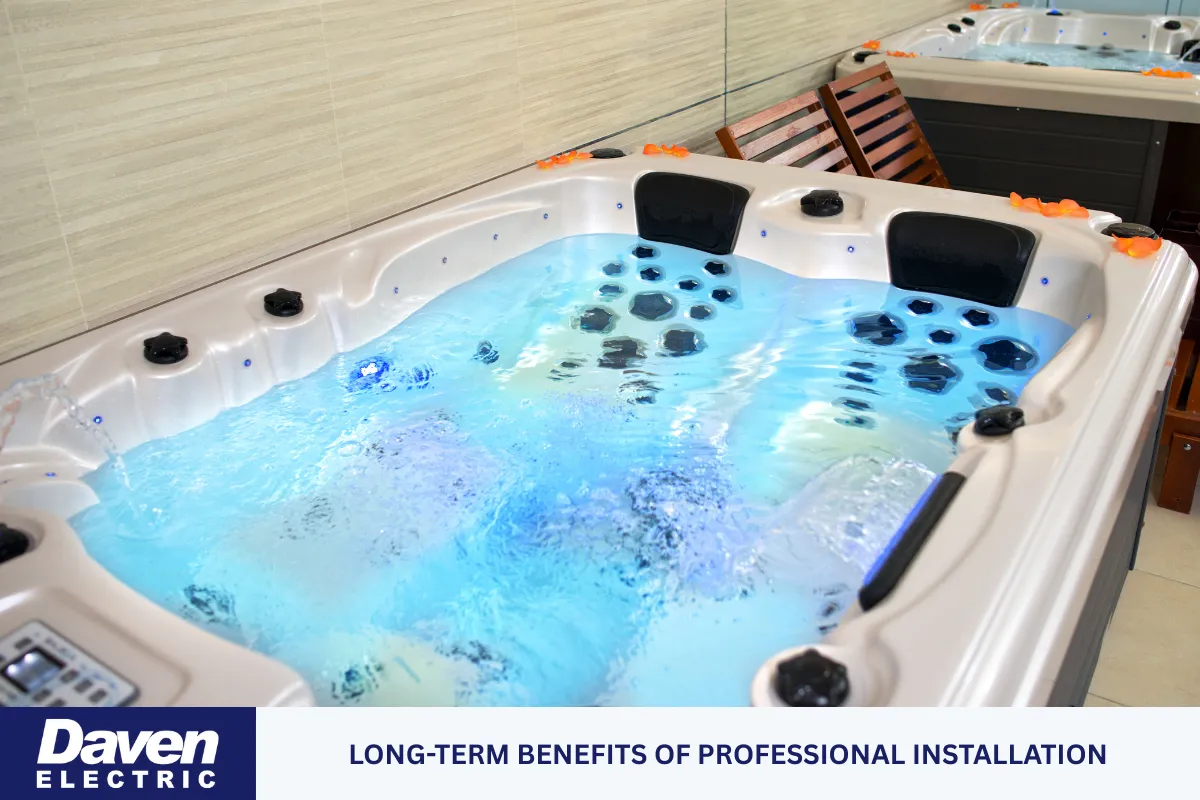
While the upfront cost of hiring a Brooklyn electrician might seem steep, the long-term benefits are worth every penny.
Professional installation gives you:
- Peace of mind knowing the system is safe
- Full compliance with local and national codes
- Increased property value and buyer confidence
- Protection against fire, injury, and equipment failure
- Warranty retention from hot tub manufacturers
A professionally installed hot tub is not just a luxury—it becomes a safe, valuable, and long-lasting feature in your home.
A Simple Checklist Before You Install
To prepare for a smooth and timely installation, homeowners should have a few things ready before calling an electrician:
- Choose the location for your hot tub
- Know the model’s voltage and amperage needs
- Make sure there’s access to your home’s electrical panel
- Consider future additions like lighting or an outdoor sound system
Providing this information upfront helps your electrician create a clear plan, minimizing time, cost, and disruptions.
Wrapping It All Up: Why Experience Matters
Choosing the right professional for your hot tub installation is more than just checking off a box. It’s about ensuring your safety, protecting your home, and getting the most out of your investment. Every part of the installation—from the wiring and breaker panels to the permits and weatherproofing—requires attention to detail and code expertise.
Cutting corners might offer short-term savings, but it opens the door to long-term risks that can’t always be undone. Don’t gamble with your safety or your property. Hiring a Brooklyn electrician is the most reliable and responsible decision you can make for a stress-free hot tub installation.
Brooklyn Electrician – Daven Electric Corp.
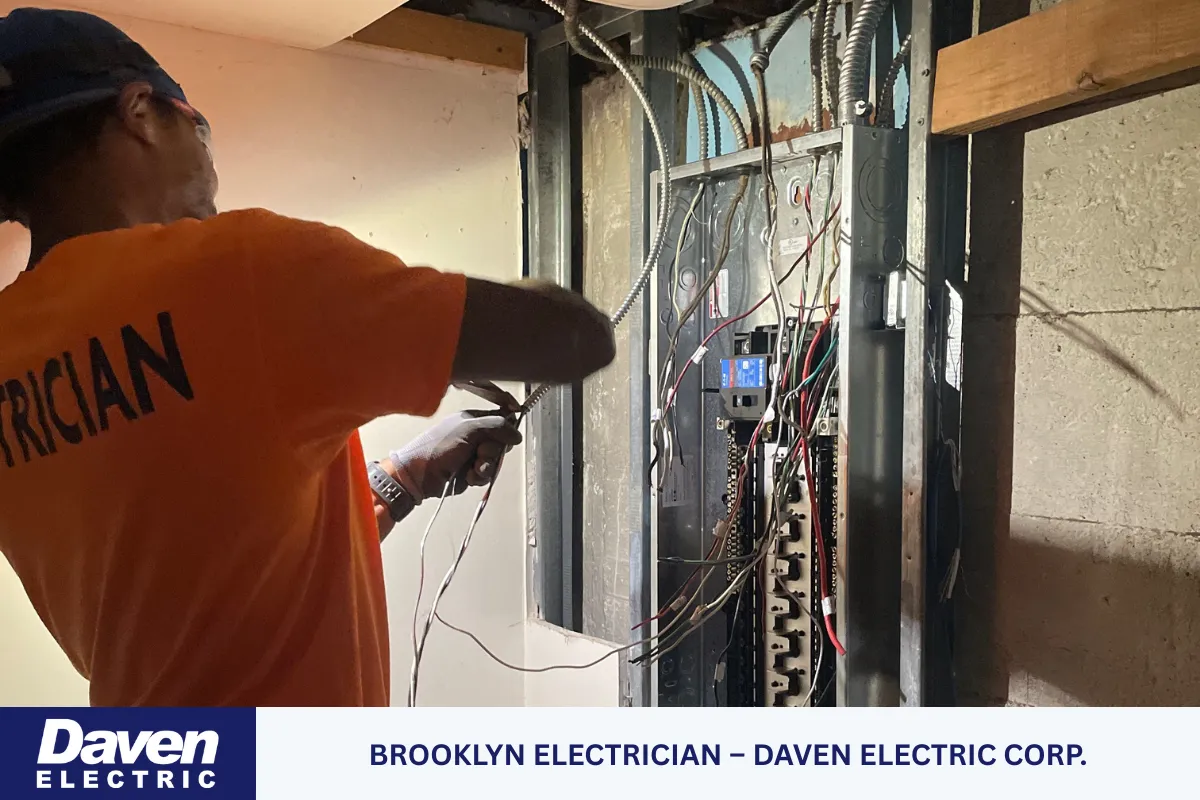
For homeowners in Brooklyn who want a professional and hassle-free hot tub installation, Daven Electric Corp. is ready to help. We provide electrical installation services for residential, commercial, and multi-dwelling buildings. Our team has the tools and experience to set up any electrical, telecom, or data system efficiently and safely—regardless of project size.
Whether you’re planning a backyard upgrade or tackling a full home renovation, call us at (212) 390-1106 to get started!
Frequently Asked Questions (FAQs)
1. Why does a hot tub need a dedicated circuit breaker and GFCI protection?
A hot tub pulls a heavy electrical load, typically between 30 to 60 amps, depending on the model. This makes it essential to have a dedicated circuit breaker that isolates the system from other electrical components in your home. This setup helps prevent overloads and maintains consistent electrical wiring performance.
In addition, GFCI protection (Ground Fault Circuit Interrupter) is legally required for hot tub wiring in New York and across the U.S. The GFCI breaker monitors the flow of electricity. It immediately cuts power if it detects a difference in current between the hot and neutral wires. This protects against electrical shock—a crucial feature for any outdoor tubs where moisture is a factor.
Professionals install these systems with proper ground fault protection, using copper wire, disconnect switches, and weatherproof enclosures to comply with safety inspections.
2. What electrical components are used in a typical hot tub installation?
A hot tub installation includes several key electrical components that work together to ensure safety and functionality. Each part must be carefully selected and installed based on the tub’s voltage and amperage needs.
Here’s what’s typically involved:
- Dedicated circuit breaker (usually 50 or 60 amps)
- GFCI breaker for ground fault protection
- Disconnect the switch within visible distance of the tub
- Outdoor-rated copper wire with proper insulation
- Electrical conduit (metal or PVC) for wire protection
- Gaskets and sealants to safeguard against moisture
Depending on the setup, outlet installation may be required for auxiliary features like lighting or audio systems. The system must also support the added electrical load while avoiding stress on your home’s existing infrastructure.
Using the right materials and techniques is critical, especially in older homes in New York, where outdated panels are common.
3. Can hot tubs be integrated with home automation systems?
Yes, many modern hot tubs can be connected to home automation systems, giving you full control over settings like temperature, lighting, filtration cycles, and jet timing—right from your smartphone or home hub. This is especially helpful in New York homes where remote access can help conserve energy during cold months.
Integration requires smart electrical components like Wi-Fi-compatible control panels and relay switches that are compatible with your automation setup. However, not all hot tubs come ready for smart tech. Some models need upgrades or additional hardware.
To make this work seamlessly, an experienced residential electrician can help with proper electrical wiring, electrical connections, and smart interface setup. It’s important to ensure your electrical load can handle automation systems in addition to daily use. Also, safety measures like GFCI protection, disconnect switches, and ground fault circuit interrupters must still be implemented during installation.
When done right, hot tub automation makes managing your wellness and energy savings easier than ever.
4. What are the signs of electrical issues after installing a hot tub?
Spotting an electrical issue early can prevent major risks and expenses. After installing a hot tub, several red flags signal something’s wrong with the system.
Be alert for the following:
- Tripping circuit breaker or GFCI breaker
- Sudden power loss to the hot tub or controls
- Unusual humming or buzzing sounds from the control box
- Warm outlets or connections near the installation site
- Water jets or lights failing to function properly
- A burning smell near the electrical connection
These could point to an overloaded electrical circuit, incorrect wiring, a failing disconnect switch, or moisture infiltration in the electrical components. In older homes in New York, improper bonding and aging systems can increase the risk of fire or shock.
You should never ignore these signs. A certified Brooklyn electrician can diagnose and provide the right electrical repair, whether it involves rewiring, replacing a damaged circuit breaker, or correcting the hot tub wiring layout.
5. How can you make your hot tub setup more energy-efficient and secure?
Installing energy-efficient models of hot tubs and optimizing your electrical project can save you money and reduce your carbon footprint. Modern tubs are built with better insulation, programmable heating cycles, and low-energy circulation pumps, all of which help cut down electricity use.
To further increase energy efficiency and address security issues, consider these tips:
- Install a programmable disconnect switch to cut power when the tub is not in use.
- Use a thermal cover to trap heat and reduce electricity demands.
- Invest in LED-based lighting installation to reduce energy costs.
- Schedule regular safety inspections to ensure all electrical components function correctly.
- Choose copper wire for better conductivity and long-term reliability.
- Upgrade older circuit breakers to smart GFCI models with remote diagnostics.
Security-wise, integrating home automation can add password-controlled access, usage alerts, and real-time monitoring—especially useful for outdoor tubs. Always consult a residential electrician to evaluate your setup and implement upgrades safely.
Read more: Common Hot Tub Wiring Mistakes Homeowners Can Avoid with a Licensed Brooklyn Electrician

